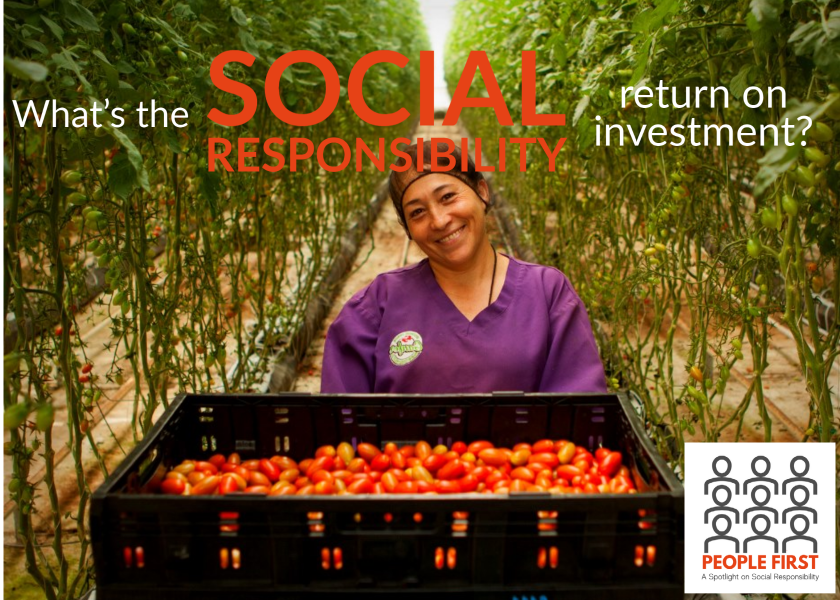Benefits and return on investment for social responsibility weighed

The costs, benefits and return on investment of social responsibility programs were considered by respondents to The Packer’s social responsibility survey.
Forty-one industry operators considered the benefits of participation in social responsibility programs and the return on investment.
While the benefits of the program are many, the return on investment is harder to figure.
“The many benefits of social responsibility programs include firstly a positive impact on the world and the people you work with, improved brand and reputation, a more compelling case to attract and retain talent, as well as potential cost savings realized by reducing resource use and waste,” said Steve Roosdahl, vice president of operations for The Oppenheimer Group.
Sandi Kronick, CEO of Happy Dirt, said social responsibility programs can bring less labor turnover, increased morale, and quality output.
“A program that provides training and education alongside it seems to have almost instant benefits, especially given that food producers and retailers deal with seasonality and high turnover,” said Brianna Shales, marketing director for Stemilt Growers.
She said return on investment depends on how it is measured. “In some instances, the return takes time to realize and is a “circle” process that never stops as you constantly have new team members to engage with about it. In other cases, and usually when it comes to more on-the-ground sustainability initiatives, you can see quick return and have it live on without much management.”
Chris Summers, vice president of food safety for Mission Produce, Inc, said the benefits of social responsibility programs include community welfare, brand recognition, fair labor practices, some emissions reduction. Return on investment is difficult to quantify, he said. “One could measure sales increases, availability and retention of labor, investor relationships, market position, emissions measurements.”
The point of social responsibility efforts isn’t to receive a return on investment, but rather “to receive a return of impact,” said Jules Buehler, business development manager for North Shore Living Herbs + Greens,
“Part of the social responsibility movement is to remove the profit-driven paradigm on all corporate/business decision making and offer a new incentive for creating alternative metrics to determine corporate success,” Buehler said.
“There are going to be certain programs that eat into profit and thus do not create a financial return on investment. That’s a reality companies must face and recognize. However, some programs (such as programs to enhance workforce harmony) do create a more productive environment, reduce employee turnover and boost internal morale. Those returns are difficult to quantify by nature, but powerful initiatives and can certainly drive profit to the bottom line.”
There are scenarios that reflect return on investment in social responsibility programs, some said.
“Our experience is that each client who has converted their regular bananas to our Fairtrade bananas has seen an increase in both sales and tonnage, almost immediately,” said Jennie Coleman, president, Equifruit, Inc. “ Under Fairtrade, you can immediately begin to calculate your social premium impact the moment you establish your program: $1 per standard 40-lb case of bananas. Those dollars add up, and so does your impact in producer communities: there is thus a wealth of stories to be communicated to your stakeholders, be they customers, employees or shareholders. Everyone wants to be associated with a business that is doing good and behaving responsibly.”







